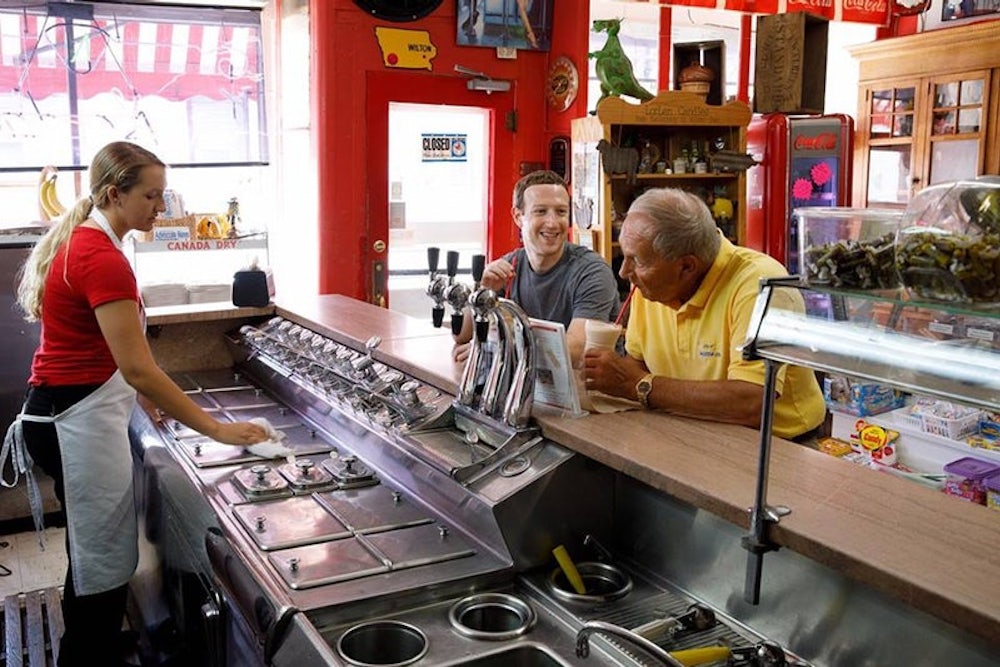Facebook’s political problems are only just beginning. Zuckerberg has spent the last several months criss-crossing the country, talking to farmers, and looking at things in a decidedly “person thinking about running for president” kind of way. But, while Zuckerberg’s hiring of Obama vets David Plouffe and Joel Benenson suggests that he might be flirting with higher office, it’s possible that he’s trying to solve a more immediate problem. Between the rise of “fake news,” growing evidence that Facebook was part of Russia’s attempt to influence the 2016 election, and the emerging bipartisan consensus that tech platforms like Facebook should be more heavily regulated, Facebook surely knows that a storm is brewing.
In this light, Zuckerberg’s goofy trips to diners and invocations of Beyoncè are a ham-fisted attempt to generate goodwill and political clout, both of which will be badly needed when the storm comes. On Thursday it was reported that Senator Mark Warner was looking into passing stricter regulation of political ad buys on social media platforms.
But even though there’s plenty of evidence that Russia spent money on Facebook ads during the 2016 election, President Trump is having none of it. On Friday, he took to Twitter to dismiss the newest revelations as fake news:
The Russia hoax continues, now it's ads on Facebook. What about the totally biased and dishonest Media coverage in favor of Crooked Hillary?
— Donald J. Trump (@realDonaldTrump) September 22, 2017
The greatest influence over our election was the Fake News Media "screaming" for Crooked Hillary Clinton. Next, she was a bad candidate!
— Donald J. Trump (@realDonaldTrump) September 22, 2017
The usual suspects were dumbstruck by these tweets, but they’re advancing the same argument that Trump has made for the last ten months: that Russian influence on the 2016 election has been wildly overstated in an attempt to discredit his historic victory. (There is also the possibility that Trump was complicit in Russian interference; regardless, it’s obvious that he literally welcomes interference that benefits him.)
For Zuckerberg and Facebook, this couldn’t come at a worse time. While the company would almost certainly want an alliance with just about any other politician who would have them, the last thing they want at a moment of heightened certainty is an association with the deeply unpopular Trump.
